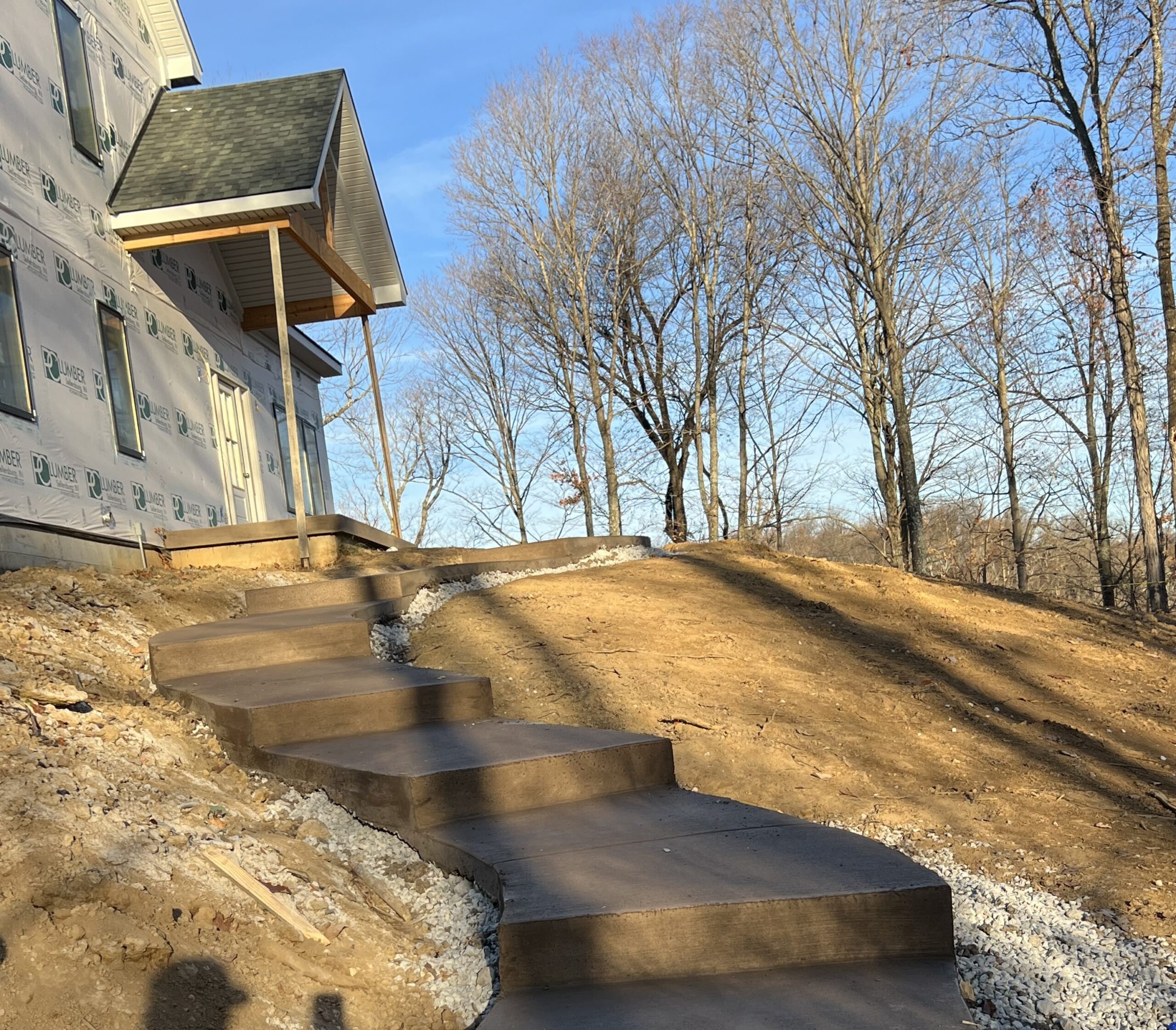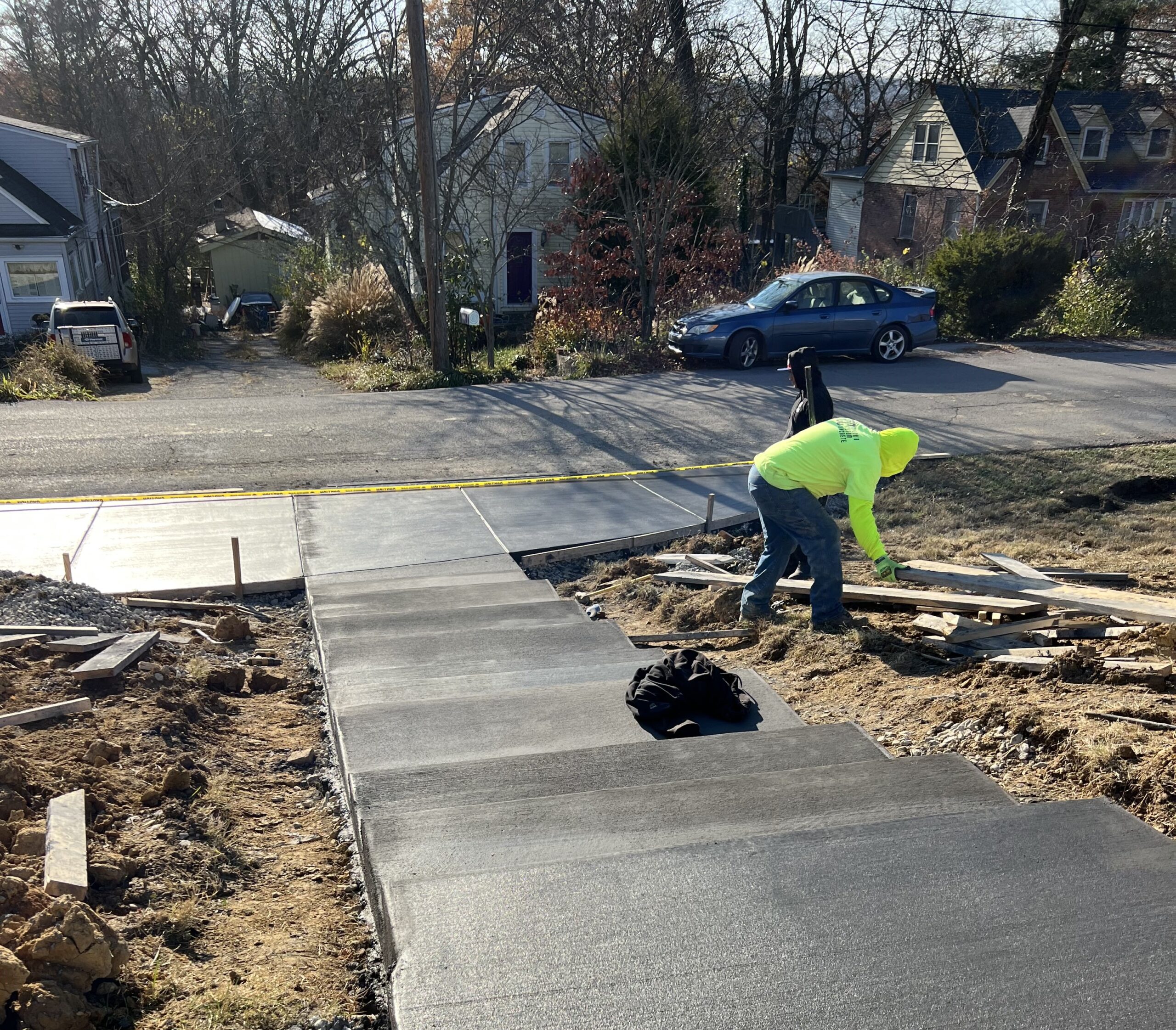RELIABLE AND PROFESSIONAL CONCRETE SERVICES
If you’re looking for top-notch custom concrete services, look no further than Taylor’s Custom Concrete. We offer a wide range of services and always use the highest quality materials.
RELIABLE AND PROFESSIONAL CONCRETE SERVICES
RELIABLE AND PROFESSIONAL CONCRETE SERVICES

RESIDENTIAL SERVICES
RESIDENTIAL SERVICES
✓ Decorative and Stamped Concrete
✓ Steps and Porch Work
✓ Broom-Finish Flatwork
✓ Pool Decks and Concrete Seal Coating
✓ Concrete Repair
✓ Single Axle Dump Truck Services
COMMERCIAL SERVICES
COMMERCIAL SERVICES
✓ Building and Parking Lot Formwork
✓ ADA-Compliant Ramps
✓ Decorative and Stamped Concrete
✓ Broom-Finish Flatwork
✓ Pool Decks and Concrete Seal Coating
✓ Concrete Repair
✓ Single Axle Dump Truck Services
✓ Apartment Concrete

WHO WE ARE
Taylor’s Custom Concrete was founded in 2015 by Donnie and Kasey Taylor. A company rooted in honesty, integrity, and kindness, with a strong drive to help others achieve their custom concrete dreams at affordable prices.
WHO WE ARE

WHO WE ARE

Working with Taylor's custom concrete was a great experience! Top notch work and completed on time. Donnie and his team are simply the best! If you have a concrete project and want to work with a group of professionals Taylor's custom concrete should be your only call!

Donnie's team did a great job taking out the old concrete and putting in new one that perfectly matches my driveway's features. They also added installed the basketball goal base plate and anchors, and it looks very sharp. It made installing the rest of the basketball goal easy since the base was already level.

Donnie & his team did such a good job on our patio extension! Job was completed all in one day and we’ve been enjoying it ever since! Prices were great compared to other competitors, they got us on the schedule quick, and they were professional! We highly recommend them!

Donnie and his team were amazing. I had quotes from four other people and he was either comparable or cheaper. I went with Donnie because I also had word of mouth from another person on how great he was. He is currently quoting more concrete work for me.

We had a concrete patio poured and they did a great job! Our yard is pretty uneven and they were able to add a small curb/retaining wall to fix that issue.Looks great! We are very happy with Donnie and TCC and would recommend them to anyone.

This is the second time we have had concrete work done by Taylor Custom Concrete. We are very pleased with the completed jobs and with the professionalism provided by the entire crew. Highly recommend. You won’t regret it.

Donnie and his crew were amazing! Had my driveway redone, due to a leak in my foundation. Haven’t had an issue since! Extra drain added! Beautiful cleanup! #thatbeardtho

We have used TCC on many jobs and the work is always exceptional. They show up as scheduled and great to work with. Highly recommend!

Every time I’ve used their services I am always amazed at how well the work is done, timely and at or under budget.





